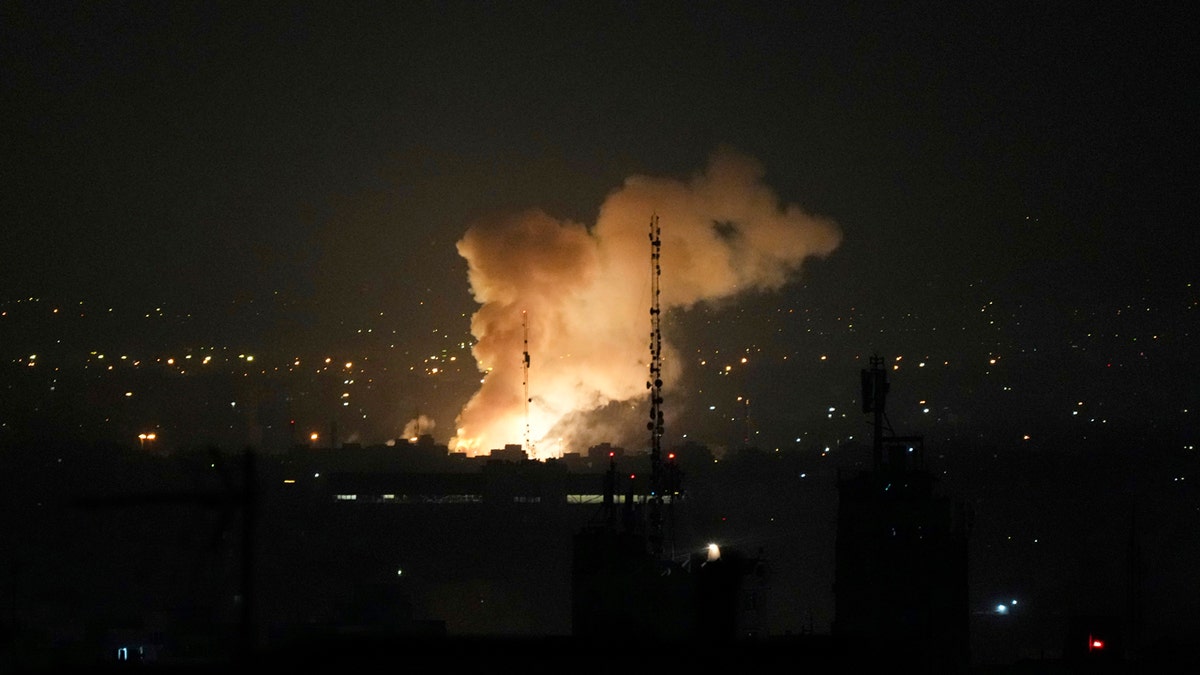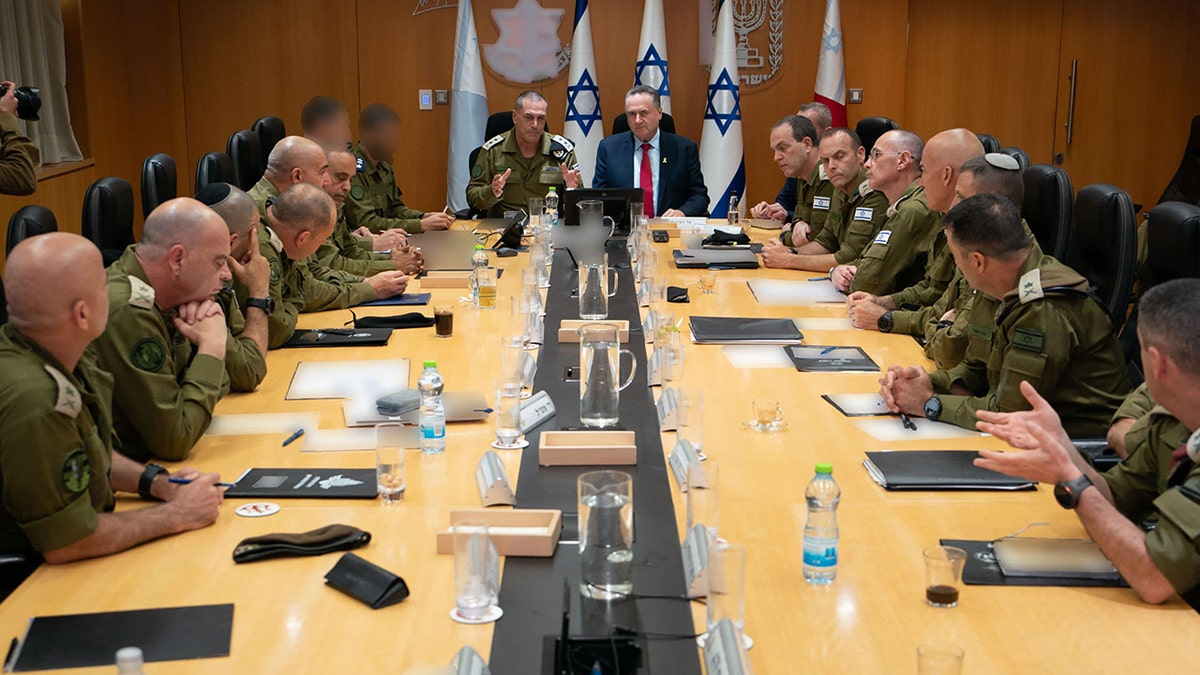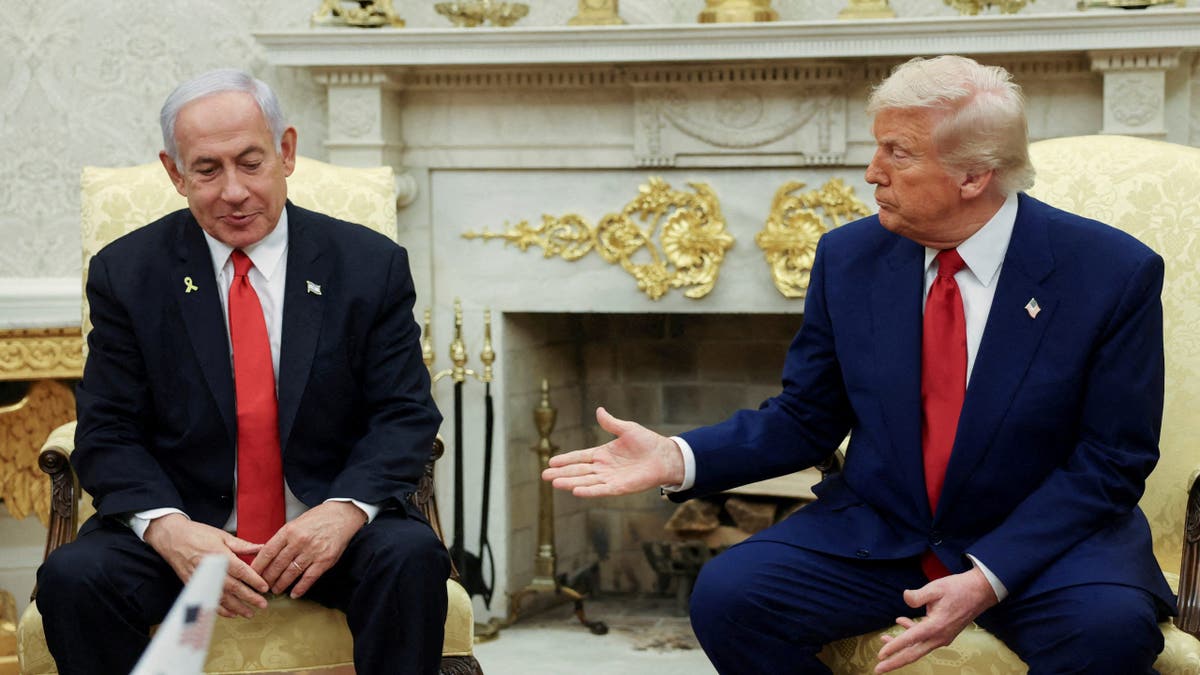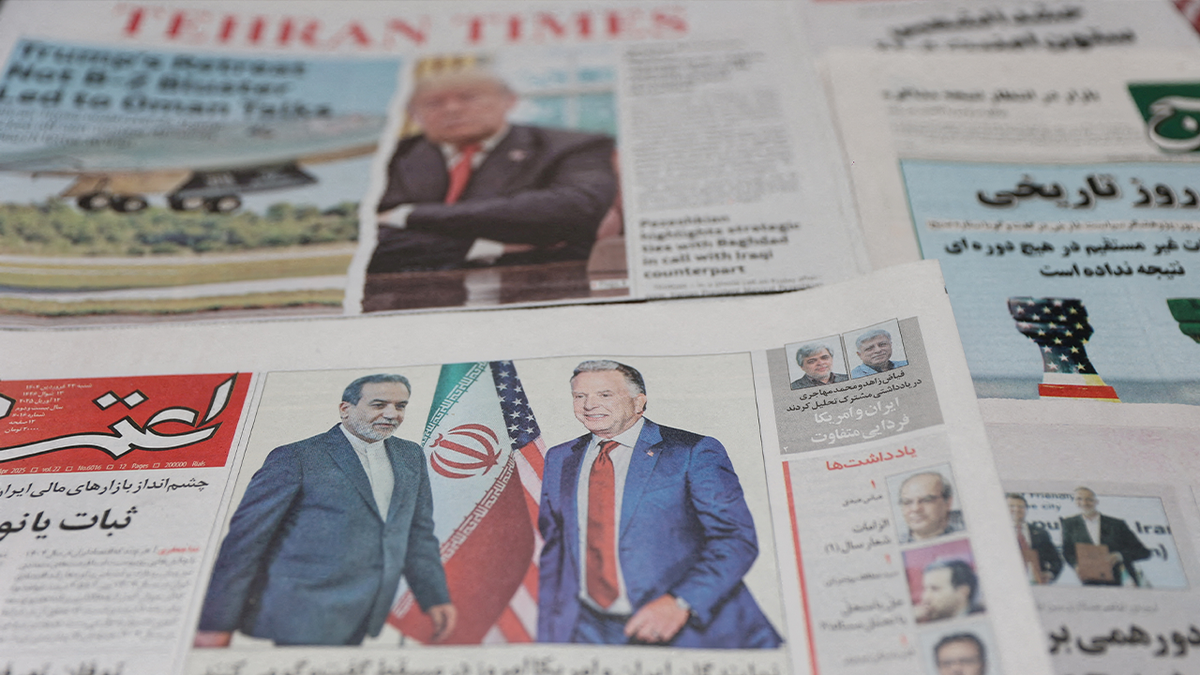
NEWYou can now listen to Fox News articles!
Israeli Defense Forces (IDF) have launched a sweeping strike on Iran following months of attempted, and seemingly failed, nuclear negotiations between the Trump administration and Tehran, but according to Secretary of State Marco Rubio, the U.S. was not involved in the strikes.
“Tonight, Israel took unilateral action against Iran,” Rubio said in a statement Thursday night. “We are not involved in strikes against Iran and our top priority is protecting American forces in the region.
“Israel advised us that they believe this action was necessary for its self-defense,” he added.

Smoke rises up after an explosion in Tehran, Iran, Friday, June 13, 2025. (AP Photo/Vahid Salemi)
In remarks following the strike, Israeli Prime Minister Benjamin Netanyahu confirmed, “We targeted Iran’s leading nuclear scientists working on the Iranian bomb, we also struck the heart of Iran’s ballistic missile program.
“Our fight is not with the people of Iran, our fight is with the Iran’s dictatorship,” he added.
PRESIDENT TRUMP ON RISING TENSIONS WITH IRAN
According to an IDF spokesman the strike has been dubbed “Operation Rising Lion” and came after Jerusalem had collected “high-quality intel” that suggested “Iran is closer than ever to developing a nuke.”
An IDF spokesman told reporters, “We have no choice but to act against these existential threats to the State of Israel.”
Fox News’ Trey Yingst reported that Israel carried out strikes in Iran, adding that explosions were heard in the capital of Tehran.
A state of emergency has been declared across Israel as the country braces for an Iranian response.
The strikes came after Israel first threatened to go after Iran’s nuclear facilities in early November following a series of back-and-forth missile attacks between April and October last year.
Direct engagement between Israel and Iran began after Tehran in April 2024 levied its first ever direct strikes against Israeli territory. Israel responded less than a week later and destroyed part of Iran’s S-300 long-range air defense system.

(Courtesy of Israeli MOD)
TRUMP WARNS ISRAEL STRIKE ON IRAN ‘COULD HAPPEN’ AMID MIDDLE EAST EVACUATION, NUCLEAR NEGOTIATIONS
On Oct. 1, Iran levied a ballistic missile strike on Israel, to which Jerusalem responded with a series of hits on Oct. 26 that targeted military facilities and missile storage locations.
Israeli Prime Minister Benjamin Netanyahu later confirmed that Israel’s October strike partially degraded part of Iran’s nuclear program, and international concerns remained heightened that the security threat could escalate in the region.
Some hoped that President Donald Trump’s administration would be able to make headway in nuclear negotiations where the Biden administration, and others in the international community could not.
Negotiations between Washington and Tehran, mediated by Oman, resumed in Muscat on April 12 and Trump repeatedly called on Netanyahu not to hit Tehran and to let negotiations proceed.

U.S. President Donald Trump talks to Israeli Prime Minister Benjamin Netanyahu during a meeting where Trump announced nuclear talks with Iran, Washington, U.S., April 7, 2025. (REUTERS/Kevin Mohatt/File Photo/File Photo)
IRAN BECOMING ‘MUCH MORE AGGRESSIVE’ IN NUCLEAR TALKS, TRUMP TELLS FOX NEWS
Following the first round of talks, Middle East Special Envoy Steve Witkoff told Fox News that the U.S. was looking to limit Iran’s uranium enrichment to 3.67%, a level generally used for civil nuclear energy needs.
Under the Joint Comprehensive Plan of Action (JCPOA), which Trump pulled out of in 2018, Iran committed to maintaining no more than this level of enrichment until 2031 – though it has been found to have repeatedly violated this agreement.
But the next day, on April 15, Witkoff backtracked his comments and said in a statement that “Iran must stop and eliminate its nuclear enrichment and weaponization program.”
Four days later the U.S. entered its second round of nuclear talks in Rome on April 19, before a third round was held in Muscat on April 26. Both sides expressed optimism following the talks.
Details of the negotiations were not released, but reports suggested the discussions largely focused on limiting Iran’s nuclear program in exchange for sanction relief.
Talks appeared to take a turn after the U.S. hit Iran with another round of sanctions in late April, which resulted in the postponement of the previously scheduled May 3 talks.
The fourth round of talks began to show signs of strain when Iran described the negotiations as “difficult but useful,” and Iran’s Foreign Minister Abbas Araghchi made clear that Washington’s zero enrichment demand was a “non-negotiable.”

An Iranian newspaper with a cover photo of Iran’s Foreign Minister Abbas Araqchi and U.S. Middle East envoy Steve Witkoff, is seen in Tehran, Iran, April 12, 2025. (Majid Asgaripour/WANA (West Asia News Agency) via REUTERS)
CLICK HERE TO GET THE FOX NEWS APP
Oman’s Foreign Minister Badr al-Busaidi reported that “some but not conclusive progress” was made following the fifth round of talks held in Rome on May 23.
By early June, Trump and Iranian leader Ayatollah Ali Khamanei had repeatedly made clear they both would refuse to bend when it comes to the issue of enrichment, but a sixth round of talks was still set for June 15 in Oman.
It is unclear if those talks will continue following the Israeli strike.
 Latest Breaking News Online News Portal
Latest Breaking News Online News Portal






